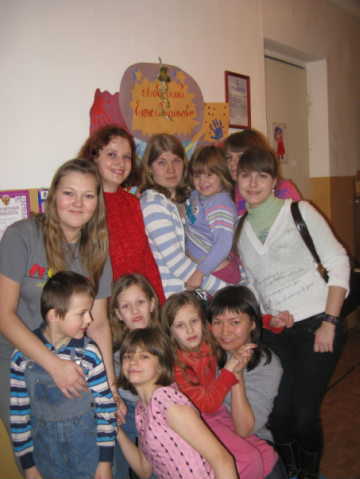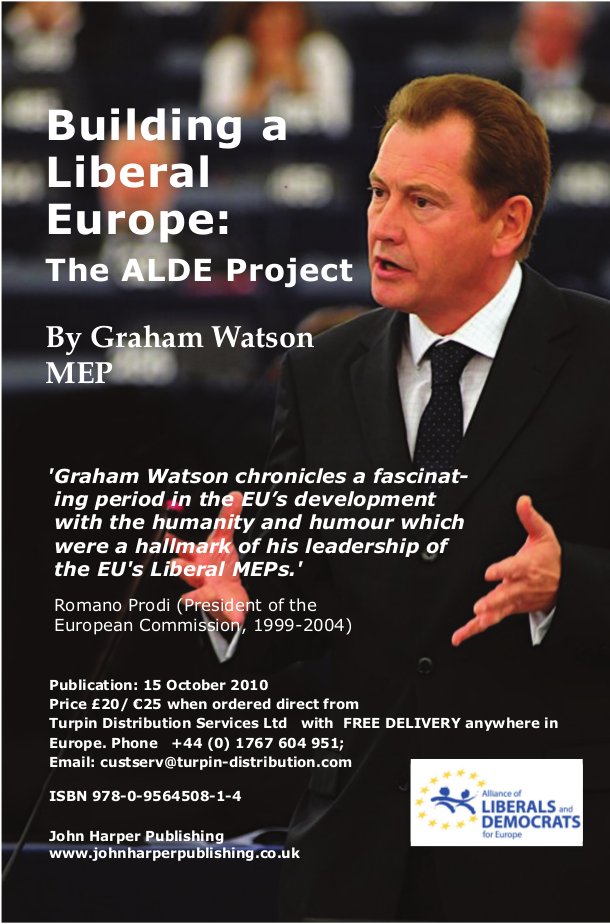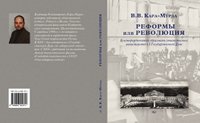International conference on overcoming stereotypes took place in Moscow
Press release, 28.10.2015
International conference “Killing Stereotypes and Finding Common Values and Points for Interaction” was held in Moscow on Saturday, 24 October. The conference was organized jointly by the Alliance of Liberal and Democrats for Europe party (ALDE) and its member parties – YABLOKO and Danish Radikale Venstre.
Video
Galina Mikhaleva, Secretary of YABLOKO Political Committee, opened the conference. She emphasized that it was for the fifth time that such a conference had been held in Moscow.
Sir Graham Watson, ALDE party President, and Morten Østergaard, President of Radikale Venstre, sent their video addresses to the conference.
The conference was divided into six panel discussions. The first panel was dedicated to the social liberal priorities including the social liberal priorities of ALDE and the EU, social liberalism in Russia, YABLOKO’s and Radikale Venstre’s social liberal priorities.
YABLOKO Chairman Sergei Mitrokhin compared the specifics of liberalism in Russia and Europe and analysed the social liberalism in the historical perspective – today and 100 years ago.
He noted that the goal of liberalism in Europe was liberalisation of politics and in Russia liberalisation of the society.
At the same time, the EU countries hadn’t face the problem of transition from the totalitarian system to democracy but Russia had faced that problem at a greater extent than in Eastern Europe, Mitrokhin said.
Klaus Frandsen, member of the national accounts committee and ex Chairman of the Radikale Venstre member organisation, explained that of late Radikale Venstre had been in three faces: in an opposition face (2009-2011), in governmental face(2012-2015) and in opposition face once again (since 2015). He recalled the traditional agenda the social liberals dealt with during all the three periods: retirement age changing, migration issues, education, unemployment and environmental problems.
“We lost a lot of jobs during the financial crisis. Our economy was too dependent on construction like yours has been too dependent on resources. That resulted in a lot of job losses. So, what was the political social liberal approach in such kind of situation? It is being honest. Be willing to address the things you need in this kind of political situation. We had to raise the effective retirement age. That was the principal of honesty.”
“When we came into government we did all these measures. It was very evident that some of the measures were highly unpopular, especially tightening the unemployment support. What is interesting, when you get to these core social liberal issues, civil liberties issues, liberal parties and up being very alone. Because it is not to the same extent the priority of any other type of a party.”
YABLOKO founder Grigory Yavlinsky spoke about the relations between Europe and Russia. “In historical perspective Europe does not have any prospects without Russia, as well as Russia does not have any prospects without Europe. In spite of the fact that Russia-EU relations have a “smell of war” at present, we have to overcome stereotypes and look for the way of interaction and mutual economic and political integration,” Yavlinsky said.
According to Yavlinsky, in 30-40 years there will be two centres of economic power in the world: North America and Asia. Yavlinsky noted that Europe would be able to successfully compete against North America and Asia in only Europe would find a way of interaction, economic and political integration with Russia, Ukraine and Belarus.
Levik Khachatryan, member of the Board of the Armenian National Congress, former Minister of Trade spoke about the philosophy and development of social liberalism. Quoting Friedrich Hayek he stressed the importance of such function of the state as delivery of social good for the society and individuals.
Anatoly Golov, YABLOKO Bureau member, spoke about the problems of housing capital repair works which has become an important part of social liberal agenda in Russia.
The participants of the second panel discussion Galina Mikhaleva, Secretary of YABLOKO Political Committee, and Mette-Annelie Rasmussen, Chair of the Radikale Venstre International Committee expressed their concern in connection with the raising of nationalistic moods both is Russia and Denmark.
Galina Mikhaleva remained that the propaganda machine was started in 2000 to prepare the society for the current state of things. “The creation of the inner and outer enemy image helps to distract th attention of the population from the mistakes done by the President and his Administration.”
Mette-Annelie Rasmussen expressed concern in connection with the increase of support for rights wing populist in Denmark within recent years. However, Radilake Venstre took the decision to give the floor to the populists at Folkemødet annual meeting organized by the party.
The third panel was devoted to election campaigns holding within different political conditions.
Emilia Slabuniva, MP in the Legislative Assembly of the Republic of Karelia, spoke about the mayoral election campaign of 2013 in Petrozavodsk, capital of the Republic, when YABLOKO’s Galina Shirshina won the elections. Emilia Slabunova was running as a YABLOKO mayoral candidate and Galina Shirshina was YABLOKO’s technical candidate in case the authorities decided to remove Slabunova from the race which actually happened. When it turned out that Emilia Slabunova was the most popular candidate with the voters according to a public poll, the authorities fabricated the grounds to remove her from the elections. She was prepared for that and called her supporters to vote for Galian Shirshina. Shirshina gained 41,9 percent of votes against the ruling party candidate’s 28,9 percent.
Lev Shlosberg, Chair of the Pskov branch of YABLOKO, known for revealing the facts of sending of Russia’s paratroopers to fight against the Ukraine government, spoke about the importance of participation in elections even if they are unfair.
“We will be able to keep our voters with us only if we participate in the elections. The party itself can exist and develop only due to participation in elections. But the most important thing is that the elections are the only alternative to violence.”
“The United Russia party and personally President Putin are the categoric antagonists of the elections. If they could abolish elections, they would have done it. The institution of elections itself is incompatible with both Putin and United Russia. That is why election fraud takes place,” he stressed.
Mikhail Menshikov, YABLOKO municipal deputy in Moscow Dorogomilovo district, spoke about the municipal elections in Moscow and the challenges YABLOKO candidates had to face in municipal election campaigns. He also added that the end of one campaign is the beginning of the next campaign. Speaking about the coming elections Menishikov said that YABLOKO’s strength is in telling the truth.
In his speech Dmitry Kushpita, Chair of the Vladimir branch of YABLOKO and deputy of the City Council, spoke about the recent election campaign which allowed the party enter the City Council and the methods the activists used to attract the voters’ attention.
YABLOKO Bureau member Nikolai Rybakov compared the current methods the regime in Russia used with the historic term of Potemkin villages [Grigory Potemkin, the Empress’ favourite, erected the fake portable settlement along the banks of the Dnieper River in order to fool Empress Catherine II during her journey to Crimea in 1787. The phrase is now used, typically in politics and economics, to describe any construction (literal or figurative) built solely to deceive others into thinking that some situation is better than it really is]. However, Rybakov disagreed with Lev Shlosberg’s statement that Putin and his team are the antagonists of elections. He noted that the institute of elections was playing into their hands and was helping to create the appearances of pluralism.
Henrik Kjerumgaard, former head of press secretariat of Radikale Venstre, spoke about the strategic communication in politics. He also stressed the importance of party symbolic and the impression it makes on physiological perception of voters.
The fourth panel discussion was dedicated to human rights universal principles and their implementation.
Vadim Karastelev, Moscow Helsinki Group Projects Coordinator, spoke about the history of the Helsinki Group creation.
“The Group published newspapers containing the true information on the situation with human rights in the USSR. People learned about the repressed peoples, situation in prisons, what was the soviet court system all about from those newspapers”.
He also said that today Moscow Helsinki group was working on the police monitoring project during the election period.
Karsten Fledelius, Chairman of the Danish Helsinki Committee, said that the Moscow Helsinki Group was the inspiration for the Danish Helsinki Committee. He also expressed distress in connection with the fact that Russia’s law on foreign agents created obstacles in cooperation with the Soldiers’ mothers group, the organisation which protects the rights of soldiers.
According to Julius Freiherr von Freytag-Loringhoven, head of the Friedrich Naumann Foundation office in the RF, the Helsinki agreement of 1975 was the key action for the general international acceptance of basic human rights and the process which had been started then continued up to now. “For liberals in general personal freedoms and personality always go first than economics”.
Valery Borshchev, co-Chair of YABLOKO Human rights faction, spoke about the adoption of the law on creation of public control of prisons. Borshchev was the author of the bill. In 1999 YABLOKO faction in the State Duma introduced the initiative and it was adopted. “Unfortunately, now the authorities introduce new bills limiting our activity. For example, when I talk to a prisoner during a visit to a jail and the prisoner complains about abuse a warder has the right to stop me if he considers that it does not concern the topic,” he said.
The fifth panel was dedicated to women’s participation in liberal topics. Dr.Prof. Nadezhda Shvedova, principal researcher, Institute of Social Sciences of the Russian Academy of Sciences, explained that the attempts to preach traditional values was hypocrisy and contradicted with liberalism as patriarchate and sexism lied on the basis of the so called traditional values.
Olga Radayeva, deputy Chair of YABLOKO Gender faction and YABLOKO Chairman Advisor, explained that Article 19 of the Russian Constitution proclaiming gender equality was not enough to protect human rights as a matter of fact since there are no other normative documents. “We do not have a law on gender equality and a law against domestic violence despite the fact that over 14 thousand women in Russia die each year from home violence according to the official statistics,” she noted.
Mette-Annelie Rasmussen, member of City Council of Copenhagen and Chair of Radikale Venstre International Committee, spoke about the history of women’s movement in Denmark. “100 years after we were given the right to vote, we have 37 percent of women candidates running for the parliament. However, equality has not been achieved yet,” she said.
Flo Clucas, leader of ALDE Gender Equality Network, expressed solidarity with the persecuted politicians in the Republic of Karalia.
“It is a cultural problem that women think politics is not for them. And we face this problem in different cultures”.
“We need to create mechanisms to bring women to politics.” Flo Clucas approved of the gender quota system.
Tanja Ljungkvist, Vice Chair of Women’s Organisation of the Swedish People’s Party of Finland, spoke about the experience of SFP of Finland in involvement of women in politics. With every elections the number of women involved grows. “At the elections of 2013, 43 percent of our candidates were women”.
The participants of the last panel discussion raised the issue of youth participation in politics.
Maria Efimova, deputy Chair of Moscow Youth YABLOKO branch, explained why the majority of young people in Russia support the present regime. “Vladimir Putin and his team are interested in keeping their power as long as possible therefore that did everything possible to bring up the generation of people who cannot think critically. However, there are many young people in Russia who understand that the current regime leads Russia to destruction but they are not ready to challenge the regime as it is the case with changing the values within the society. It takes much longer that one election cycle”
Chair of Moscow Youth YABLOKO branch Nikolai Kavkazsky said that one of the main issues concerning the Russian youth was abolition of the conscription system. “In our country young men who have some disease are happy because it gives them the possibility to avoid the military serves in the army. We raise the topic of the conscription abolition together with anti-war agenda, our party and its youth wing find it extremely important.

Charlotte Burgess, Alexander Gnezdilov, Galina Mikhaleva, Nikolai Kavkazsky, Sergei Mitrokhin, Mikhail Menshikov
Nickolas Pagonakis, International Officer, Radikale Venstre Youth Faction, told the audience about Radikale Venstre Youth Oraganisation. He stressed that RV youth participate in the discussions of the mother party as equals and try to contribute in the discussions with the topics that are urgent for young people. For example, last year RV youth concentrated on three major issues: role of youth organisations in the world politics, provision of high quality education for all and climate change. Addressing the “grown up” parties audience Pagonakis said, “Do not be afraid to give the responsibility to the young. We can also teach you something and even improve the results of your elections.”
Jelena Jesajana, LYMEC Board Member, Political Campaigns Officer, spoke about the youth politics in general and LYMEC – organisation of young liberals, – its aims and goals. “We the young people, should be in on the forefront of our mother parties, also we act as the check and balances system for the mother parties so they always remain liberal,” she noted. Thus, LYMEC proposes topics and resolutions to its mother party – the ALDE party – that are most important for the young, for example, professional education, which is very important for the young people so that they could get jobs. Also LYMEC considers constructive criticism of its mother party be an important activity. “But we always propose an alternative when we criticize our mother party, and this strengthen our relations with the mother party,” Jesajana said.
Й
Posted: October 30th, 2015 under Moscow, YABLOKO and Radikale Venstre conference 2015.




















































